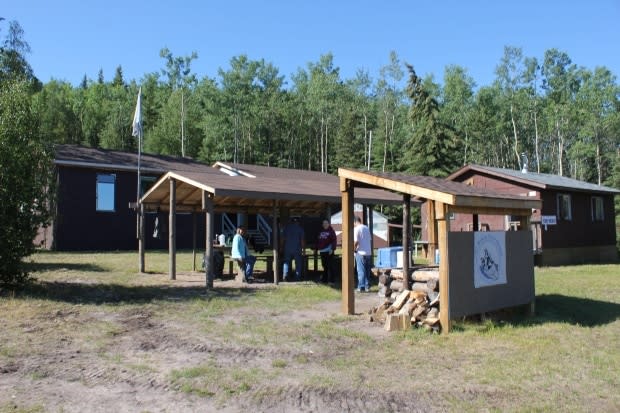'This is home for us': Fort McKay First Nation seeks deal to protect 'Moose Lake' area
Fort McKay First Nation wants to forge a deal with the province that will protect land in the heart of Alberta's oilsands region.
They're asking the premier and cabinet to sign on to a plan to protect land surrounding Namur and Gardiner Lakes, where the First Nation has its two largest reserves. The First Nation refers to the land as Moose Lake, and the reserves as the Moose Lake Reserves.
"We've been working on the Moose Lake plan for 20 years with the Alberta government," Chief Mel Grandjam said in an interview with Edmonton AM on Thursday. "This area is the last area — our pristine lands. And it's really important that we protect it. This Moose Lake plan identifies parameters where we can work with industry and government for responsible development that also addresses and protects our treaty rights."

Grandjamb said the Moose Lake Access Management Program was developed with government and industry and respects a 10-kilometre zone around the Moose Lake area. The chief will meet with the Alberta government at the Moose Lake Together Summit in Edmonton on Jan. 31. The government has committed to completing the plan.
"This is home for us, this is where Fort McKay originated from," Grandjamb said. "We go out there — we hunt, we gather. We just live the culture that we were raised with. [This] is the last pristine area where we practice our treaty rights."
The deal is being sought as the Alberta government faces pressure to approve the proposed Rigel project, a small oilsands development about 70 kilometres northwest of Fort McMurray.
In June 2018, the Alberta Energy Regulator (AER) approved another project 70 kilometres northwest of Fort McMurray that would operate within 10 kilometres of the Moose Lake Reserves.
On Tuesday, Prosper Petroleum Ltd. appeared in a Calgary courtroom in the hopes of persuading a judge to order the provincial government to issue a decision.
Meanwhile, Fort McKay has won the right to appeal the AER's decision.
The First Nation argues the Rigel project should not have been approved until the Moose Lake plan negotiations are finished. Grandjamb said he hopes the UCP government will approve the plan after the previous NDP government "failed to address any issues that Fort McKay has raised."
"I'm very optimistic," Grandjamb said, pointing out that the First Nation employs 1,600 people. "Mr. Kenney came here. We showed him the community. We gave him a tour of what responsible development is. We've taken the rewards of development and created a good infrastructure for the community and responsible development shows what we have in the community."
Indigenous Relations Minister Rick Wilson, Environment Minister Jason Nixon and Energy Minister Sonya Savage, as well as representatives from PetroChina, Sunshine Oilsands, Athabasca Oil and Chevron Canada are among those who will attend the Moose Lake Together Summit.
In a statement Thursday afternoon, Nixon's press secretary Jess Sinclair said the minister had met with the chief and council, which was "an important step."
"Government has been talking with Fort McKay First Nation about protecting the area around Moose Lake for almost 20 years, and it's time we crossed the finish line together and finalize a plan that balances the area's complex needs and opportunities," she said. "Like Fort McKay First Nation, we also want a responsible approach to development in the area."

